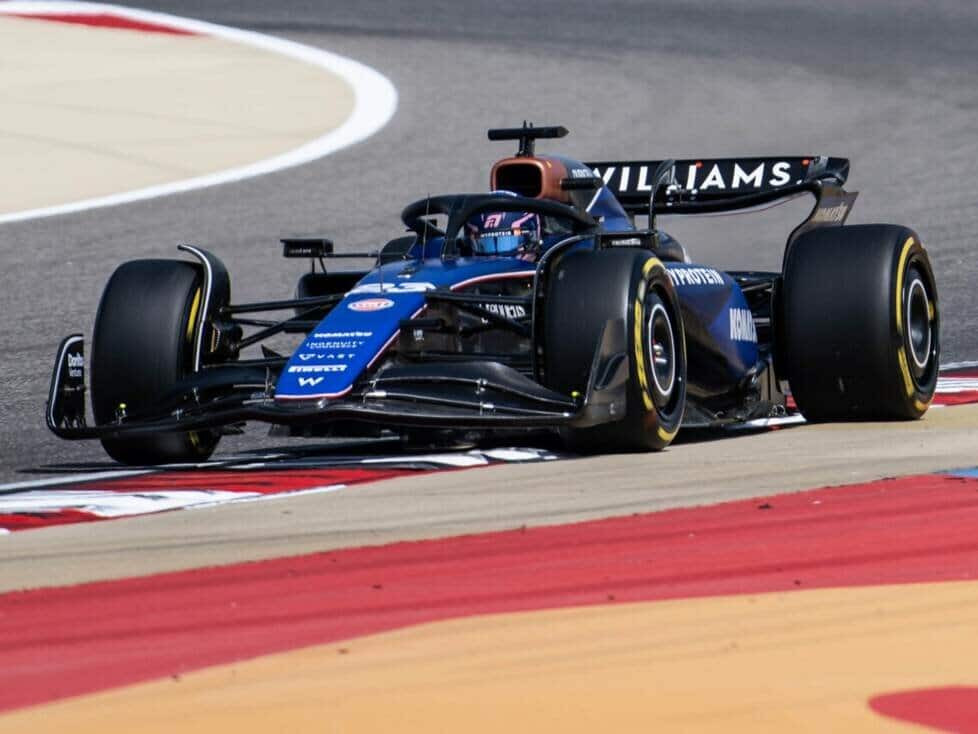Why Williams team principal James Vowles recognizes great progress with the FW46, but still warns against expecting too much from Albon and Sargeant
“I would say we have a strong foundation to build on, a strong package.” This is how Williams team principal James Vowles summarizes the starting position of his racing team before the start of the 2024 Formula 1 season
But he highlights one feature of the new Williams FW46 in particular: “I would definitely say that the balance of the car is significantly better than last year. The predictability for the drivers is better. They understand what the car is doing and they can react to it.”
This is in contrast to last year’s FW45, whose performance was often limited by external factors such as wind and weather. “The car sometimes fell into a hole,” says Vowles. “We didn’t experience that with the FW46, either in the simulations or during the three days of testing. That’s a good thing.”
Now it is a matter of “exploiting” this “good balance” in the car on the race track, the team boss continues. However, he dampens expectations of Williams when he continues: “We may not yet get the maximum out of the car in Bahrain. It could take a few races before we really get the car up to speed.” However, he is relying on continuous performance improvements through technical updates.
But even without constant further development, the FW46 should be able to do more than last year’s car, according to Vowles: “The qualities of this car are that it should work over 24 races and not just five or six like last year. “
What is better at Williams 2024 than 2023
In general, the 2023 FW45 was “very difficult” to drive and therefore “at the limit” of what the drivers were capable of in the cockpit. “For example, you couldn’t brake the way you wanted to and it was very susceptible to wind. It looks like we’ve made really good progress with the new car. Those are the positive aspects.”
And the drivers agree. Logan Sargeant, for example, recognizes a significant improvement in turning in and cornering compared to last year. His conclusion: “A lot has happened, no doubt about it, and that’s a step in the right direction.”
From his point of view, the only thing missing now is a slightly more good-natured rear end when accelerating out of corners. “That’s the area where we want to improve the most,” says Sargeant.
Reliability is a problem for Williams
In addition, reliability is still a construction site at Williams: the new FW46 rolled out several times during the three-day Formula 1 winter tests in Bahrain. Or as team boss Vowles puts it: “Due to various durability issues, we did not achieve the mileage we wanted to.” That’s why the test was only “okay” from his point of view, “and unfortunately that’s not a good term in Formula 1.”
At least: On the third day of testing, his team had already “improved significantly” and was able to simulate a race distance with the new car. “The problem, however, is that others learned more than we did on the first two days. We have fallen behind a little,” says Vowles.
Williams had been plagued by “different” and “unrelated” problems. “And when you consider that the car was in the garage for hours while our rivals were driving around the track, that’s time lost. We can’t gain that time back compared to them.”
“So it could be that we continue to improve over the course of the Bahrain weekend and I am confident that we will continue to improve in terms of performance over the following weekends. “
Sargeant: The FW46 is “not perfect”, but …
That’s why Sargeant expressly classifies the new FW46 as “not perfect” and says: “There will always be limitations. But I think I can deal with these limitations better now [in my second year in Formula 1].”
“And there are still a lot of things we need to work on, and that won’t happen overnight. But I think it’s positive that you can feel the potential in the car. Because it’s there. “





